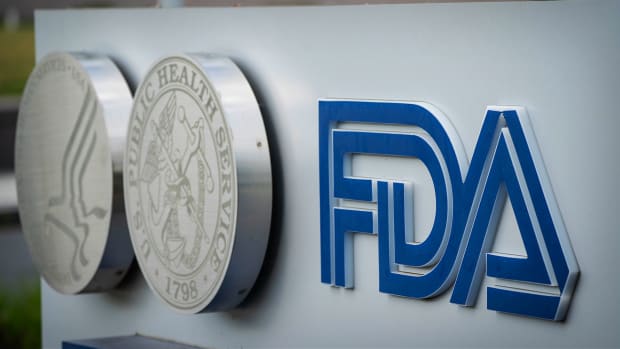
Sarepta Therapeutics (SRPT) has done it again. On May 12, a key advisory committee surprised many by recommending approval of its gene therapy for Duchenne’s muscular dystrophy, or DMD.
A rare muscle-wasting disease, DMD offers a poor prognosis for anyone diagnosed with it, and unfortunately, there are few treatment alternatives. The devastating nature of the disease likely played a significant role in influencing the panel's decision, given the briefing document provided by the FDA before the May 12 meeting questioned the efficacy and safety of Sarepta Therapeutics SRP-9001.

Sarah Silbiger/Getty Images
Sarepta Has Surprised Watchers Before
This isn’t the first time that Sarepta’s surprised industry watchers. It shocked many when it similarly secured a nod for its first DMD drug, Exondys 51, in 2016. Like SRP-9001, Exondys 51’s ability to improve motor abilities, like walking, was questioned. Nevertheless, it eventually won FDA accelerated approval, raising debate over whether regulators should have a lower bar for rare and deadly diseases like DMD.
Exondys 51 has become Sarepta Therapeutics’ top seller, but it’s not the only DMD drug the company markets. The company reported product sales of $231.5 million last quarter, comprising Exondys 51 sales of $132.6 million, up 13%, Vyondys 53 sales of $33 million, up 18%, and Amondys 45 sales of $65.9 million, up over 50% year-over-year. Sarepta Therapeutics also recorded $22 million in collaboration revenue from Roche (RHHBY) , its overseas partner on SRP-9001.
Hopes are high that the Advisory Committees' positive 8 to 6 vote in favor of approval will convince the FDA to grant SRP-9001 accelerated approval on its PDUFA date, May 29.
Forget Sarepta – We’re buying this healthcare stock
This Could Drive Sarepta Therapeutics Sales
If approved, it could significantly increase Sarepta Therapeutics’ sales and perhaps put it on course to profitability. The company’s non-GAAP loss was $85.5 million or $0.97 per share last quarter alone.
SRP-9001 is unique from Sarepta Therapeutics' existing drugs. Unlike its other therapies, which skip over damaged pieces of DNA to create a shortened yet functional dystrophin, it’s a one-dose gene therapy that inserts the necessary code to create micro-dystrophin.
In clinical trials, the gene therapy effectively allowed patients to create enough micro-dystrophin for management to conclude it could delay disease progression. However, because it inserts genetic material into the body, the FDA shared concerns with its panel that the therapy presents a risk absent evidence it improves activities like walking.
If the FDA follows the advisory panel's advice (it doesn’t have to), SRP-9001 will likely be a pricey treatment. Treating DMD is expensive, costing millions of dollars over a patient’s lifetime.
An approval could significantly increase sales, given Sarepta Therapeutics currently marketed DMD drugs are only effective in a subset of the DMD population. If approved, SRP-9001 could be used in most patients who haven't lost the ability to walk. There are an estimated 12,000 to 15,000 DMD patients in the U.S., about half of whom are ambulatory, according to Sarepta Therapeutics management.







